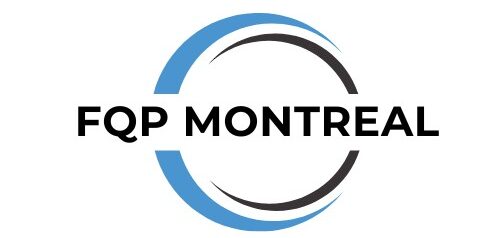Montreal, the vibrant city nestled in the province of Quebec, Canada, is renowned for its rich history, diverse culture, and thriving business environment. At the heart of this bustling metropolis lies the Montreal Financial District, an area that serves as a key catalyst for economic growth and a hub for financial activities. With its impressive skyline, world-class institutions, and strategic location, the district has played a pivotal role in shaping Montreal’s economy and cementing its status as a global business destination.
A Historical Perspective
To understand the significance of the Montreal Financial District, one must delve into its historical roots. The district’s origins can be traced back to the 19th century when Montreal experienced a surge in commercial activity and emerged as a prominent financial center in North America. As industries such as banking, insurance, and trade flourished, the district became a focal point for financial institutions to establish their headquarters.
Key Features and Institutions
Montreal’s Financial District is home to an impressive array of architectural wonders, showcasing a blend of historical and modern designs. One of the district’s most iconic landmarks is the Sun Life Building, a historic structure that stands as a testament to Montreal’s financial prowess. Additionally, the district boasts numerous skyscrapers housing major banking institutions, such as the Royal Bank of Canada and the Bank of Montreal, reaffirming its position as a financial powerhouse.
Furthermore, the district houses the Montreal Exchange, Canada’s oldest stock exchange, which plays a pivotal role in facilitating trading activities and attracting investors from around the world. This vibrant marketplace provides a platform for businesses to access capital, raise funds, and fuel economic growth.
Job Creation and Economic Impact
The Montreal Financial District’s influence extends beyond its physical boundaries. The presence of multinational corporations, financial institutions, and professional services firms has fostered a vibrant job market, creating numerous employment opportunities for both local residents and skilled professionals from around the globe. This influx of talent has contributed to Montreal’s reputation as a city with a highly educated workforce, further fueling economic growth and innovation.
The financial services sector, which thrives in the district, plays a significant role in Montreal’s economy. The availability of banking services, wealth management, investment advisory, and insurance products supports businesses and individuals in their financial endeavors, facilitating entrepreneurship and economic prosperity.
Real Estate and Infrastructure Development
The growth of the Montreal Financial District has spurred remarkable developments in the city’s real estate and infrastructure sectors. As demand for commercial office spaces increased, new buildings and high-rises emerged, reshaping the district’s skyline. This surge in construction not only created job opportunities but also led to substantial investments in infrastructure, enhancing transportation networks, and improving connectivity within the city.
Moreover, the presence of the Financial District has acted as a catalyst for further urban development in the surrounding areas. The establishment of luxury hotels, upscale restaurants, and retail establishments has transformed the district into a vibrant hub that attracts locals, tourists, and business travelers alike, stimulating economic activity and creating a vibrant urban ecosystem.
A Global Financial Hub
Montreal’s Financial District does not operate in isolation but is interconnected with other global financial hubs. Its proximity to major cities in North America, such as New York and Toronto, and its strong ties to European markets make it an attractive destination for international investors. The district’s multilingual workforce, coupled with Montreal’s cultural diversity, has facilitated seamless business interactions and transactions with global partners, further solidifying its status as an international financial hub.
Innovation and Future Prospects
As the world becomes increasingly interconnected and technology-driven, the Montreal Financial District continues to embrace innovation. It has become a breeding ground for fintech startups and emerging technology companies, attracting investments and fostering a culture of entrepreneurship. The district’s collaboration with leading academic institutions, such as McGill University and Concordia University, promotes research and development, enabling the adoption of cutting-edge technologies that drive economic growth and competitiveness.
Conclusion
The Montreal Financial District stands as a testament to the city’s economic resilience, historical significance, and forward-thinking approach. Its towering skyscrapers, world-class institutions, and bustling streets exemplify the spirit of entrepreneurship and innovation that permeates the district. As Montreal continues to evolve as a global business hub, the Financial District will undoubtedly play a pivotal role in shaping its economic future, driving growth, and attracting talent from around the world. With its rich history, diverse culture, and unwavering commitment to progress, Montreal’s Financial District is poised to remain a beacon of economic opportunity for years to come.
